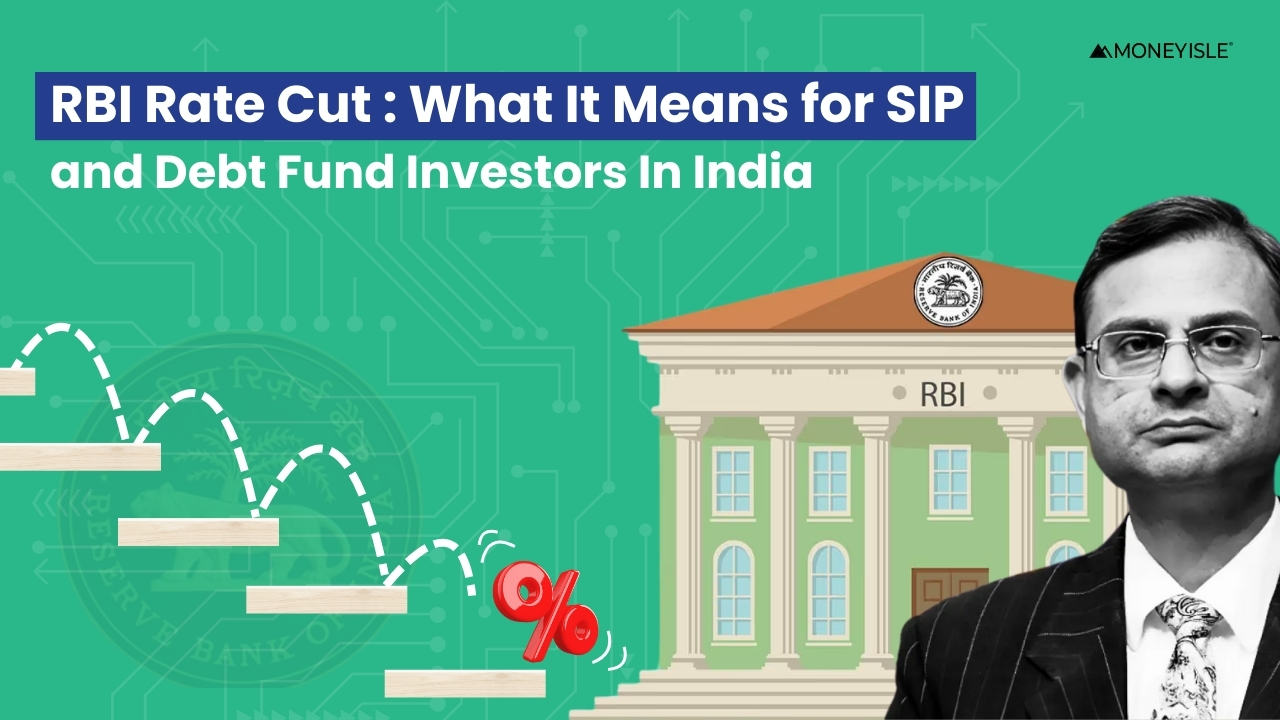The Reserve Bank of India (RBI), in its recent Monetary Policy Committee (MPC) meeting, announced a reduction in the repo rate the rate at which it lends money to commercial banks. This move, aimed at reviving economic growth and easing liquidity, has implications across sectors of the economy. For retail investors, particularly those investing through Systematic Investment Plans (SIPs) or debt mutual funds, this policy shift plays a crucial role in shaping their returns and financial strategies.
Repo Rate and Why It Matters
The repo rate is the benchmark interest rate at stock brokerage charges in india which the RBI lends short-term funds to banks. When the RBI cuts this rate, it essentially reduces the cost of borrowing for banks, encouraging them to lend more to businesses and consumers. This leads to increased liquidity in the economy, boosts spending, and often drives economic growth.
However, a repo rate cut does not operate in isolation. It impacts savings, investments, loans, and even the stock market. One of the most affected areas is the mutual fund industry, particularly debt mutual funds and SIPs.
Impact on Debt Mutual Funds
The value of these instruments is closely tied to interest rates. When interest rates fall, bond prices rise, and this boosts the Net Asset Value (NAV) of debt mutual funds. Long-duration funds, which hold longer maturity bonds, benefit the most from falling interest rates due to greater price sensitivity.
Therefore, when the RBI cuts rates, existing bond holdings in debt mutual funds—especially medium- and long-duration funds—can experience capital gains. This can make them attractive in the short term.
· Lower borrowing costs for banks
· Cheaper loans for consumers and businesses
· Lower interest income on savings instruments and bonds
However, there’s a flip side. If rates remain low for an extended period, the yields on new bonds purchased by the fund managers will be lower. This reduces the interest income of the fund over time. Hence, while there may be a short-term spike in NAVs, the long-term returns might become less appealing if the rate-cut cycle continues.
Impact on SIP Investors
SIPs are a disciplined way to invest in mutual funds—typically in equity or hybrid funds—through small, regular investments. The impact of a rate cut on SIPs may not be as direct as on debt funds, but it’s still significant.
When rates fall, borrowing becomes cheaper, which can improve corporate profitability. Increased profits and better economic growth prospects sip investment plans in inida can lead to bullish sentiments in the stock market, thereby pushing equity fund returns higher. SIP investors benefit as their regular investments are buying units during both market highs and lows, leading to rupee cost averaging and potentially strong long-term growth.
SIP, or Systematic Investment Plan, allows investors to invest a fixed amount regularly into mutual funds, especially equity or debt funds. Here’s how an RBI rate cut affects SIP investors:
1. Debt-Focused SIPs
Investors running SIPs in debt mutual funds may:
- Benefit from a short-term NAV boost due to falling yields.
- Face reduced future returns due to lower reinvestment yields.
Long-term SIP investors in debt funds should consider the average maturity and modified duration of their funds before making portfolio adjustments.
2. Equity-Focused SIPs
A rate cut usually has a positive impact on the equity market as it:
- Reduces borrowing costs for companies
- Boosts consumer spending
- Improves corporate earnings
This often results in a bullish stock market, benefiting SIP investors in equity mutual funds over the long term.
3. Rupee Cost Averaging Still Wins
Volatility in bond or equity markets might tempt some to pause their SIPs. However, the essence of SIP lies in rupee cost averaging. Continuing SIPs through different market cycles often leads to better long-term returns.
On the other hand, persistent low sebi stock exchange share price rates could lead to inflationary pressures. If inflation rises faster than expected, it could erode the real returns of both equity and debt investments. SIP investors need to monitor inflation closely and choose funds with portfolios that can beat inflation consistently over time.
Should You Invest in Debt Funds After a Rate Cut?
If you’re a conservative investor or planning to invest in debt funds, it’s important to understand the timing and strategy.. Hence, capital gains from existing bonds will likely be realized shortly after the cut, and future returns may stabilize or decrease.
Short-duration and ultra-short-duration funds might not benefit much from rate cuts compared to long-duration funds. But they also carry less interest rate risk, making them more stable in a volatile environment.
If you’re entering now, it may be wise to consider dynamic bond funds or gilt funds if you anticipate further rate cuts. These funds can actively manage duration and allocation based on the interest rate environment.
How SIP Investors Should Respond
For SIP investors, the focus should remain on long-term goals rather than short-term market movements. Rate cuts are part of the economic cycle, and over time, markets tend to adjust. In fact, a rate cut-driven bullish market can work in favor of SIP investors by providing better NAV appreciation.
However, if your SIPs are in hybrid or balanced funds that have a significant debt component, it’s crucial to review their strategy and composition. Funds with aggressive debt allocation might be impacted if rate cuts lead to sustained lower yields.
Diversifying across equity, debt, and hybrid funds helps in balancing the risk and optimizing returns. Investors should also consider speaking with a financial advisor to align their SIP investments with changing macroeconomic conditions.
Final Thoughts
The RBI’s decision to cut repo rates is an important signal broker stock market charge in india for investors. While it presents an opportunity for capital gains in debt mutual funds in the short term, it also demands caution as future yields may decline. For SIP investors, a low-interest environment may boost equity markets but may also bring inflationary risks.Smart investing in a rate-cut environment is all about balancing risk and reward. Stay diversified, monitor the market, and most importantly, remain invested with a long-term perspective. After all, consistent and disciplined investing often beats market timing.
MoneyIsle is India’s trusted online investment platform, offering easy and secure access to the stock market, mutual funds, IPOs, and more. We empower investors with intuitive tools, expert insights, and a seamless trading experience through our cutting-edge technology. Our mission is to simplify investing and help individuals build long-term wealth confidently. With a focus on transparency, customer support, and innovation, MoneyIsle is your partner in financial growth and smarter investment decisions.
Final Thoughts
The RBI’s decision to cut repo rates is an important signal for investors. While it presents an opportunity for capital gains in debt mutual funds in the short term, it also demands caution as future yields may decline. For SIP investors, a low-interest environment may boost equity markets but may also bring inflationary risks.Smart investing in a rate-cut environment is all about balancing risk and reward. Stay diversified, monitor the market, and most importantly, remain invested with a long-term perspective. After all, consistent and disciplined investing often beats market timing.
MoneyIsle is India’s trusted online investment platform, offering easy and secure access to the stock market, mutual funds, IPOs, and more. We empower investors with intuitive tools, expert insights, and a seamless trading experience through our cutting-edge technology. Our mission is to simplify investing and help individuals build long-term wealth confidently. With a focus on transparency, customer support, and innovation,MoneyIsle is your partner in financial growth and smarter investment decisions.











